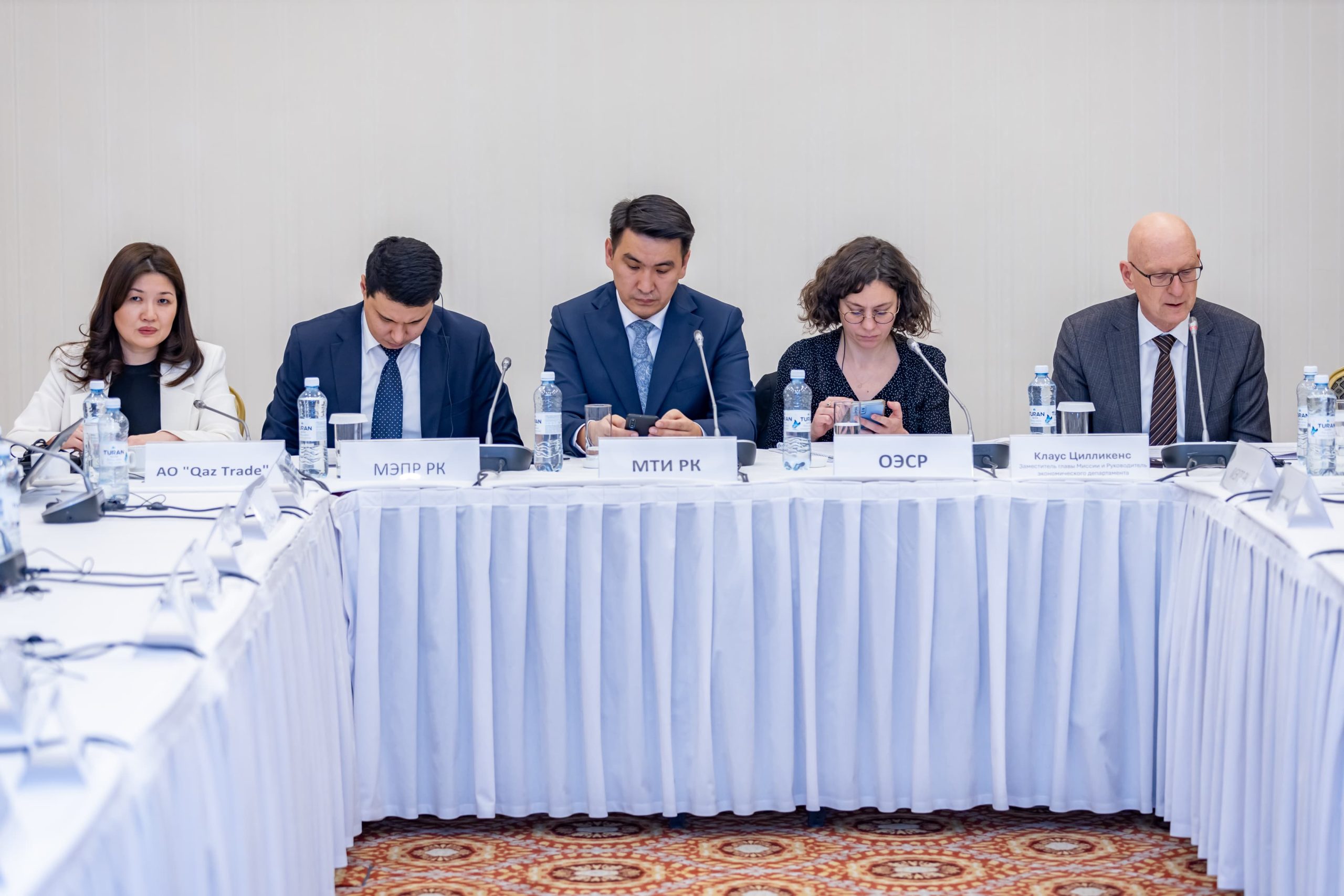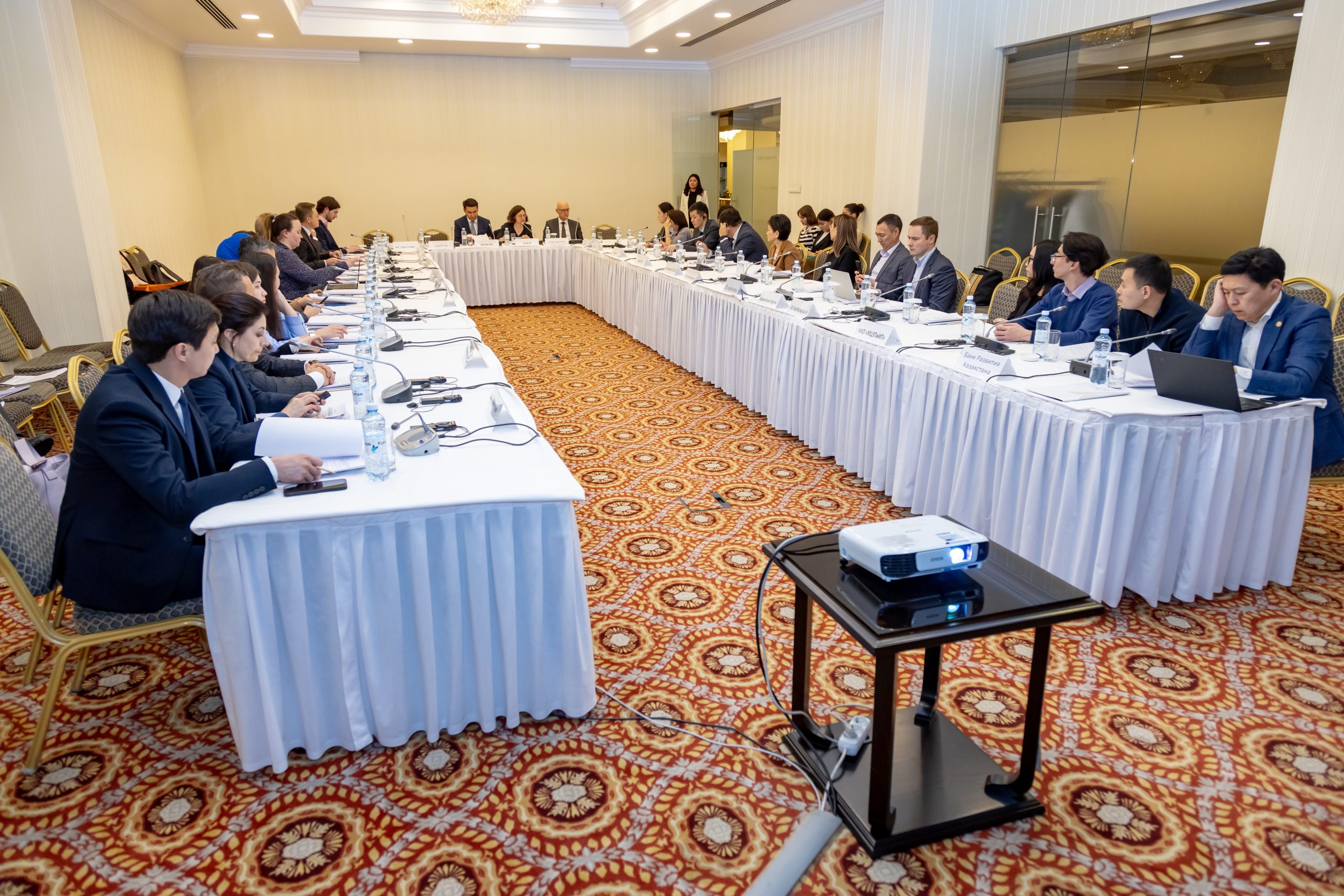
International experience in the field of decarbonization of the economy was discussed by representatives of the public sector, business, and experts at a seminar for Kazakhstani industrial exporters under the auspices of the OECD- SIPA and QazTrade.
From 2026, European countries are moving to transboundary carbon regulation. The new carbon tax will also apply to export products of Kazakh enterprises. From January 1, 2024, there is a transition period for business; after this period, increased environmental payments for emissions will affect 6 industrial sectors. This is the production of ferrous metals and aluminum, cement, fertilizers, hydrogen and electricity.
As Vice-Minister of Ecology and Natural Resources Mansur Oshurbayev informed, the introduction of a border carbon mechanism involves a large amount of work together with the supervising ministries and industrialists. An interdepartmental working group has already been created, which will quickly develop proposals and determine what risks there are for the Kazakh enterprises.
According to Nurlan Kulbatyrov, Deputy Director General of QazTrade JSC, the EU Green Deal and the introduction of the carbon border adjustment tax are both relevant to Kazakhstan’s realities. Our countries have an Enhanced Partnership and Cooperation Agreement, which covers a wide range of areas and joint initiatives. Since last year, QazTrade, in collaboration with the Ministry of Trade and Integration, has been conducting awareness-raising activities on carbon taxation for export-oriented companies.
“Our producers have questions related to the new cross-border tax initiative. We support the EU’s goals for sustainable development and decarbonization, but these goals should not create obstacles to international trade,” said Nurlan Kulbatyrov.

Today, EU countries account for 39% of Kazakhstan’s exports. This includes oil, petroleum products, ferroalloys, coal, uranium, wheat and other goods. Trade volumes among European countries show positive dynamics. In 2023, Kazakhstan exported $41.4 billion worth of products to the EU, of which $388.7 mln were carbon-intensive goods.
Senior expert of the General Directorate for Taxation and Customs Union of the European Commission Delfine Sallard explained at the seminar that cross-border regulation will mainly affect the domestic iron and steel and aluminum sectors, which accounted for about 0.9% and 0.8% of Kazakhstan’s total export value to the EU in 2022. European experts expect an increase in supplies of Kazakhstani goods with a high carbon component.
At the first stage, industrial enterprises will be required to submit quarterly reports to the European Commission containing information on export volumes, greenhouse gas emissions associated with production and quotas used. Changes can be made to reports within two months after the reporting quarter.
After 2025, carbon regulation will come into force, and free quotas will gradually be leveled out. In the meantime, according to Delfine Sallard, the payments will initially target direct emissions, but could later be extended to other sectors at risk of carbon leakage, such as oil refining and chemicals.
Head of the OECD International Programme for Action on Climate Rodrigo Pizarro spoke on what the price for carbon quotas is formed from, as well as what the emissions trading system is. According to Rodrigo Pizarro, the implementation of the Carbon Border Adjustment Mechanism is aimed at solving global environmental problems.
Kazakhstan has a target of reducing net emissions to 328.4 mln tons of carbon by 2030 and reducing emissions by 25% compared to 1990 levels, subject to international support. As OECD experts explain, this means that by 2030 Kazakhstan needs to reduce the share of coal generation from 65% to 40% and increase the share of renewable energy sources from 10% to 24%.
During the seminar, Ainur Amirbekova, Director of the International Integration Department of QazTrade JSC, listed the challenges and risks that Kazakh industrialists may face in the coming years. The introduction of a carbon tax by EU countries will automatically affect the cost of exported goods, and therefore the competitiveness of products. The increased price could hypothetically close some markets to domestic goods. This means that enterprises should start working on decarbonization and transition to alternative technologies now.
“The higher the hydrocarbon component in Kazakhstan’s exports, the higher the taxes and fees will be in importing countries. Therefore, it is necessary to develop an action plan for the modernization of technological production processes, to provide funds for their implementation, including budget funds,” said Ainur Amirbekova.
For their part, experts from the European Commission, together with QazTrade, are ready to carry out further work on training exporters, provide analytical support and support for negotiations, and also adapt export strategies of exporters taking into account greening measures.




